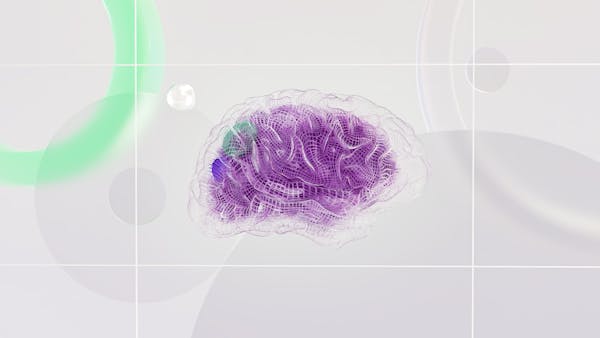The Science Side of Reality: 10 Mind-Expanding Facts
Introduction
Have you ever wondered about the true nature of reality? The world we perceive is a blend of scientific wonders and mysteries that continue to captivate the curious minds of scientists and thinkers. In this exploration, we dive deep into the science side of reality, uncovering 10 mind-expanding facts that will leave you questioning the very fabric of existence.
Reality and Perception
Our understanding of reality is intricately tied to how we perceive the world. From the colors we see to the sounds we hear, our senses play a crucial role in shaping our version of reality. But how accurate is our perception, and can we truly trust our senses to depict the world as it is?
Quantum Physics: The Mind-Boggling World
Enter the realm of quantum physics, where particles can exist in multiple states simultaneously. Concepts like superposition and entanglement challenge our traditional understanding of reality, taking us on a journey into the microscopic world where the rules of classical physics cease to apply.
Multiverse Theories
Imagine a reality where every possible outcome of every decision you make exists in a separate universe. Welcome to the multiverse. We explore the mind-bending theories that suggest the existence of multiple universes, each with its own set of possibilities and outcomes.
Time Dilation: A Twist in the Fabric of Time
Time is not as constant as we perceive it to be. With time dilation, a concept from Einstein's theory of relativity, we uncover how time can behave differently in different gravitational fields. Strap in for a journey through the twists and turns of the fourth dimension.
The Butterfly Effect: Chaos Theory in Action
A butterfly flapping its wings in one part of the world can set off a chain reaction that leads to a hurricane on the other side of the globe. Welcome to chaos theory, where small actions can have profound and unpredictable consequences, shaping the course of events in ways we can't foresee.
Neuroplasticity: The Ever-Changing Brain
Our brains are not static entities but rather dynamic and adaptable. Neuroplasticity, the brain's ability to reorganize itself, allows for constant learning and adaptation. Discover how the brain's flexibility contributes to our ever-changing perception of reality.
String Theory: The Fabric of the Cosmos
String theory proposes that everything in the universe, from the smallest particles to the vast galaxies, is composed of tiny vibrating strings. As we delve into this complex theory, we explore the potential for string theory to unify the fundamental forces of nature.
Dark Matter and Dark Energy
The universe is not just made up of the matter we can see. Dark matter and dark energy, though mysterious and invisible, play crucial roles in shaping the cosmos. Uncover the enigmatic nature of these cosmic components and their impact on the universe's structure.
Simulation Hypothesis: Are We Living in a Computer Program?
What if everything we perceive as reality is nothing more than a sophisticated simulation? We explore the intriguing concept of the simulation hypothesis, raising philosophical questions about the nature of existence and our place within a possible computer-generated reality.
Consciousness and the Brain
The relationship between consciousness and the brain remains one of the greatest mysteries in science. We delve into the ongoing quest to understand how the brain generates consciousness, exploring the blurred lines between the tangible and the intangible.
Parallel Universes: Beyond Our Imagination
The idea of parallel universes suggests that multiple versions of our reality coexist, each with its own unique events and outcomes. Join us as we stretch our imaginations to contemplate the vast possibilities presented by the concept of parallel universes.
The Holographic Universe
Could our reality be a holographic projection? We explore the holographic universe theory, where every piece of the cosmos is interconnected, creating a multidimensional tapestry that challenges our conventional understanding of space and time.
Morphic Resonance: Connecting Minds and Memories
Morphic resonance proposes a connection between minds and memories that transcends the boundaries of space and time. Join us in exploring the idea that collective memories shape the reality we perceive, creating a web of interconnected experiences.
Conclusion
In this journey through the science side of reality, we've encountered mind-expanding facts that challenge our preconceptions and ignite curiosity. The
world is a tapestry of scientific wonders waiting to be unraveled, inviting us to explore the unknown and embrace the complexities that make our reality truly extraordinary.
FAQs
1. Can these mind-expanding facts be explained in simpler terms?
- Absolutely! While the concepts are complex, we've strived to present them in a way that's accessible and engaging for everyone.
2. Are these theories widely accepted in the scientific community?
- Many of the theories discussed have gained traction, but scientific understanding is ever-evolving. It's essential to stay updated on the latest research.
3. How do these concepts impact our daily lives?
- While some may seem abstract, these theories influence scientific advancements and our philosophical understanding of existence.
4. Can I explore these topics further on my own?
- Definitely! Each topic provides a gateway to a vast field of study. Dive into books, documentaries, and online resources to deepen your understanding.
5. Are there practical applications for these scientific theories?
- Some theories, like quantum physics, have practical applications in technology, while others contribute to our broader understanding of the universe.



0 Comments